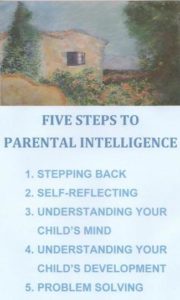How Parents Handle Teen Romantic Relationships During the Pandemic

How parents relate to their teens and young adults or late adolescents with regard to their romantic relationships during the Pandemic is based to a large extent on the parent-teen relationship pre-COVID.
Middle and late adolescence is certainly the time we expect young people to want relationships to grow and if they have had open discussions with their parents pre-COVID, I would expect that to continue.
If there has been a great deal of distance in the parent-teen relationship, the experience of being with parents quarantined would seem to exacerbate the tensions because the teens have less social outlets and opportunities to pursue social relationships due to social distancing and mask wearing.
Hopefully, the parents can reduce tensions by being open minded about their teens viewpoints, opinions, intentions, thoughts and feelings and in that way increase the teens feelings of being respected by their parents which should improve communication and consequently health safety.
BUILDING CLOSE BONDS WITH TEENS
Listening closely to teens without interrupting them is key to this shift in a closer relationship especially in close quarters. Parents need to demonstrate by listening carefully to their teens that they respect their opinions and want to hear them. Then disagreements can be discussed, and parent-teen relationships will grow.
The dystopian nature of these times lends itself to parents needing to openly discuss with their teens a new area of risk-taking and acting on impulse because of the dangers of getting and transmitting the virus. This is a difficult time for parents and teens who may also be discussing or concealing feelings about sexual desires and the pre-COVID risks of pregnancy and sexually transmitted diseases that of course continue.
So, the nature of these times makes open communication even more important than ever.
Hopefully, parents after listening attentively to their kids’ views are carefully sharing their own viewpoints as well and discussing commonalities and differences in vantage points.
A GENERATIONAL DIVIDE CAUSES INCREASED STRESS
There needn’t be a generational divide exacerbated by the Pandemic unless either the youngsters or the parents aren’t following and believing in the reality we are facing with regard to illness and thus the need for testing to make sure youngsters in romantic relationships are tested frequently before and while they pursue physical contact.
The political differences rampant in the U.S. that lead to some adults denying the significant risks involved due to their political leanings may bear heavily on their teens who follow such parents poor advice in not following COVID guidelines and consequently become ill or are actually more informed and cautious than their parents because they can think for themselves. Such differences can certainly lead to a great deal of stress for the youngsters.
PARENTING APPROACHES
The question of permissiveness or authoritarian approaches must be understood within this context. Neither parent nor teen wants permission to take health risks because of their developmental romantic desires. This would be neglectful parenting in my view.
At the same time, “laying down the law” about risks involved in an authoritarian manner and slipping into unwarranted punitive behavior on the part of parents will only increase tensions and instill a need for defiance if the teens experience their needs for increasing independence being disregarded.
ENCOURAGING CARE TOWARD ROMANTIC PARTNERS
As a mental health professional who has worked with parents and teens for decades it has become clear to me that both parents and teens need to face the frightening reality of our times and keep that in mind as teens form new and maybe long lasting romantic relationships. Teens need encouragement to care about the partner they want a relationship with in a safe and healthy way.
THE PARENTAL INTELLIGENCE WAY
In other words, I don’t see “permissiveness” or “authoritarianism” as the real issues here. As always, I encourage THE PARENTAL INTELLIGENCE WAY which involves collaboration and problem solving between parents and kids.
Health, safety, and respect and care for others is the primary goal for parents and teens alike. If parents and teens share their concerns openly and intelligently with regard to social distancing, masking, and testing the generations will be on the same page.
Parent-adolescent bonds will become stronger as they face together the strange times we are living in.